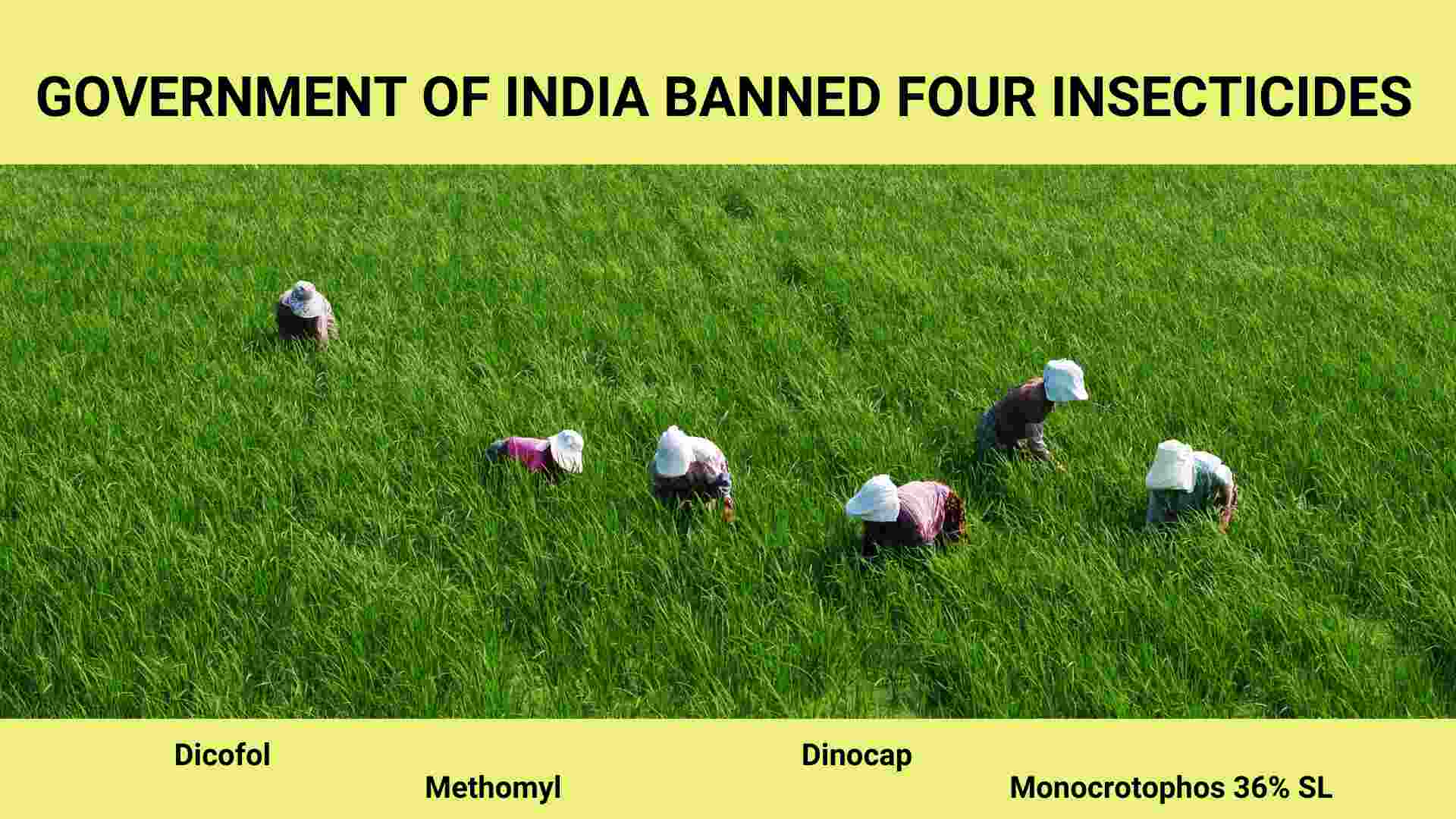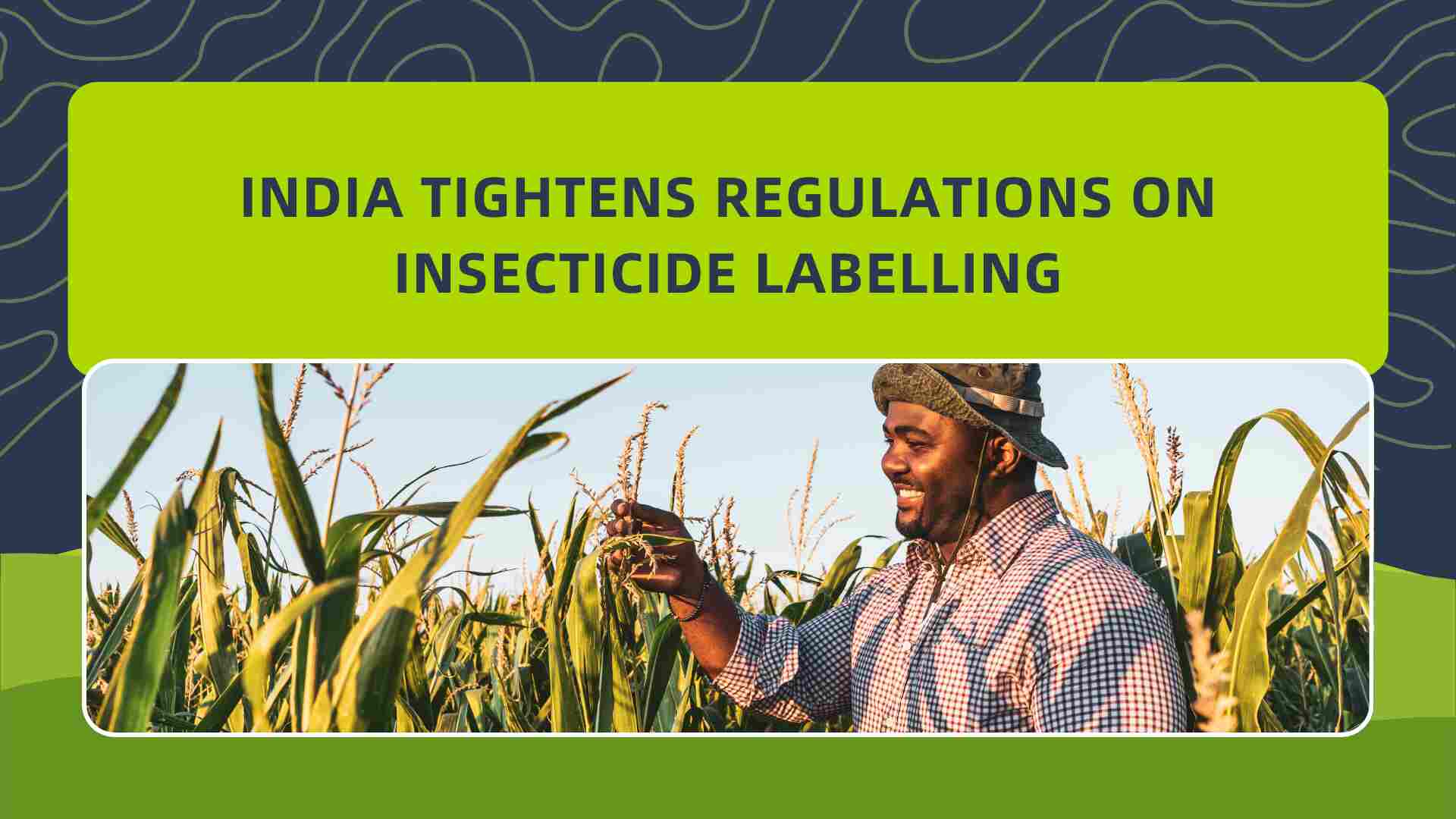Authority of India CIB-RC has prohibited the use of three insecticides, namely Dicofol, Dinocap and Methomyl from the date of publication of order. This order is effective from date October 3, 2023.
The order also prohibits the manufacture and sale of Monocrotophos 36% SL formulation except for existing stock which can be sold and used until its expiry date. Sale, distribution, or use of Monocrotophos 36% SL shall be permitted only for clearing existing stock until its expiry period. The purpose of offering alternatives to this formulation is to prevent farmers from suffering losses due to the unavailability of effective control against certain insect pests in specific crops. The label claims for other formulations of Monocrotophos may be extended in a year from the date of publication of this Order. After this period, all the certificates of registration of Monocrotophos 36% SL will stand cancelled.
Decision of the central government decided upon the recommendation of the CIB-RC
- They found that these insecticides are harmful to human health and the environment.
- Dicofol and Dinocap are known to be carcinogens.
- Methomyl is highly toxic and has been linked to numerous cases of poisoning.
Government of India also restricts use of seven insecticides on certain crops.
Label claim of Carbofuran, Malathion, Quinalphos, Mancozeb, Oxyfluorfen, Dimethoate, and Chlorpyriphos insecticides for certain crops are omitted with effect from publication date.
- Decision taken due to non-availability of bio-efficacy and residue data.
- Registrants to submit certificates of registration for deletion of label claims within six months.
- State governments to ensure implementation of order.
Implications
The government has advised farmers to use alternative insecticides that are registered and approved by central insecticide board.
They have also directed state governments to take all necessary steps to implement the order.
This is a significant development in the Indian government’s efforts to reduce the use of harmful pesticides and promote sustainable agriculture.









